If you’re anything like the clients I work with www.coach4ldrs.com you spend an inordinate amount of time sifting and sorting through information: research and reports, email and texts, online news, social media, voice mail, not to mention the face-to-face information that is shared in passing, in meetings and conferences.
I’ve been writing about this in recent posts. Here are more good tips to stop the avalanche of information that clogs up our workspace so we can concentrate on what really matters, the things that will bring in the best results.
5. Meditate on Jesus
The art of meditation provides a means for clearing the mind of chatter and stray thoughts. There is no doubt that we are subjected to an abundance of noise and information overload which is delivered with a perverted invitation to hurry, hurry, faster, faster! The famous quote from Carl Jung reminds us “Hurry is not of the Devil, it is the Devil. According to Christian teachings an antidote for the endless internal monologue that loops in our brains is mediating on God with God. When the overload moment hits use that as an invitation to connect with Jesus. It seems just like God to use what is challenging us to grow us.
6. Cut off the flow
How can you retool your life to consume less info, less frequently? Make it a habit to leave the radio off in your car when you drive to work and enjoy the silence. You don't need the TV on to repeat the news talk. Make it a rule never to surf the web, TV, or other “glowing rectangles” after 8 P.M. Another favorite idea it is use the Sabbath for a day of no “screens”. Might you take the challenge and cut off the flow?
7. Outsource solution finding
Find ways to outsource your decision making and solution finding to other people, so you don’t have to bathe in the info stream to the point that it scalds your mind.
8. Reduce your informational needs
You can survive on far less information than you realize. Do you really need to scan the CNN headlines every morning on your cell phone? What is that doing for your life? How is it making you a better person and moving you closer to your goals? Excise what you don’t need – and do regular audits.
One wise person put herself on an information diet for a year. At the end of December, she accessed all the top news stories for the year on the Time Magazines site. Like watching the highlights of a football game, she only wants to know the interesting parts.
Tips 9 through 45,276
[Deleted because you’ve gotten what you need out of this article and you don’t need to waste more time consuming information, even if it's about how to stop consuming information!]. What do you think? What other tips or best practices do you use? I’d love to hear from you (truly!) Send me an email marc@mocoach4ldrs.com or contact me via LinkedIn https://www.linkedin.com/in/marcottestadchristianceo/




